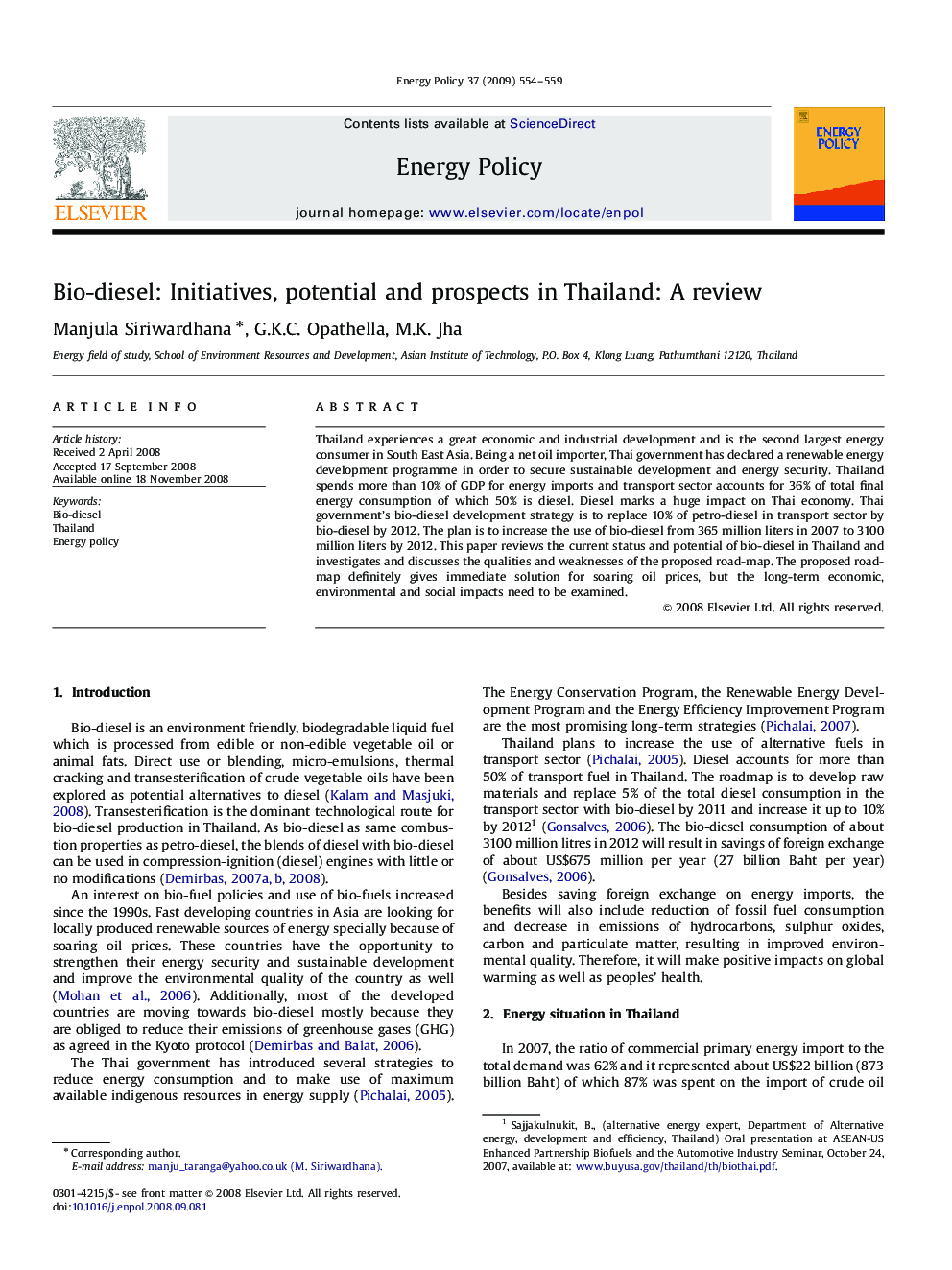| Article ID | Journal | Published Year | Pages | File Type |
|---|---|---|---|---|
| 993775 | Energy Policy | 2009 | 6 Pages |
Thailand experiences a great economic and industrial development and is the second largest energy consumer in South East Asia. Being a net oil importer, Thai government has declared a renewable energy development programme in order to secure sustainable development and energy security. Thailand spends more than 10% of GDP for energy imports and transport sector accounts for 36% of total final energy consumption of which 50% is diesel. Diesel marks a huge impact on Thai economy. Thai government's bio-diesel development strategy is to replace 10% of petro-diesel in transport sector by bio-diesel by 2012. The plan is to increase the use of bio-diesel from 365 million liters in 2007 to 3100 million liters by 2012. This paper reviews the current status and potential of bio-diesel in Thailand and investigates and discusses the qualities and weaknesses of the proposed road-map. The proposed road-map definitely gives immediate solution for soaring oil prices, but the long-term economic, environmental and social impacts need to be examined.
